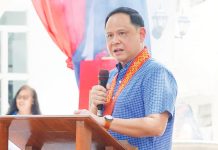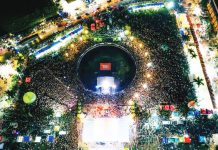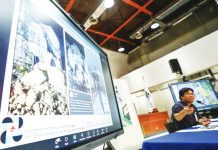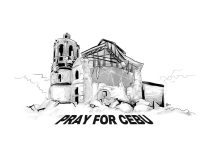
BUT THOSE of us who teach history, who carry memory as both burden and gift, know that symbolic erasures often precede real ones.
The Atenean historian Ambeth Ocampo once wrote that history is not what happened—it is what people choose to remember. This is why context matters. It is why facts matter. It is why storytelling matters. When students ask whether Ninoy is still relevant, I remind them that freedom of speech, academic freedom, and their ability to protest stem from the sacrifices of people who stood up when it was dangerous to do so. It was not just Ninoy. It was the collective courage of an exhausted people. But his death lit the match.
And it matters that he died in full view of the world. It matters that his last breath came not in a dark prison cell but on the tarmac, beneath an afternoon sun, while news cameras rolled and soldiers turned their backs. That image seared itself into the national memory. Sometimes, we need a moment like that — a jarring, brutal interruption of the status quo — to remind us of what we have been tolerating for far too long.
There are students today who ask why Ninoy is a hero at all. They have seen the flaws, the rumors, the politics. Fair questions. Healthy skepticism. But the answer lies in understanding that greatness is not the absence of imperfection. It is the decision to do something right despite those imperfections. It is the embrace of accountability when others chase comfort. It is showing up.
As former Ateneo de Manila University President Fr. Bienvenido Nebres noted in a speech, a man with deep conviction will always challenge complacency — not because he is perfect, but because he cannot bear the cost of silence.
It would be dishonest to ignore the criticisms. There are legitimate questions about Ninoy’s early political moves, his ambitions, and his alliances. His son, President Noynoy Aquino, had his own share of missteps, and their family name has not been immune to scrutiny. But honoring a hero is not about canonization. It is about drawing lessons from choices made under fire. It is about what their story adds to our collective conscience. As teachers, students, workers, citizens, parents, and voters, we are responsible for discerning between myth and memory.
When my students debate who deserves to be remembered on holidays, I always turn it back to them. Who do you think deserves your attention? Who stood up when it was dangerous? Who chose country over comfort?
It is not about sainthood. It is about service. Ninoy Aquino was not the only hero of his time. But when the moment came, he returned. He stood at the edge of death and did not flinch. That is something our current and future leaders ought to reflect on.
To remember Ninoy Aquino is to remember that freedom has a cost. That heroes are not born from perfection but from purpose. That history is not an altar but a mirror. He is not above criticism, but his choice to come home, knowing what waited for him, remains one of the bravest acts in our political history. In the end, what counts most is that he showed up. And sometimes, in the face of darkness, that is enough to start a revolution.
***
Doc H fondly describes himself as a ‘student of and for life’ who, like many others, aspires to a life-giving and why-driven world that is grounded in social justice and the pursuit of happiness. His views herewith do not necessarily reflect those of the institutions he is employed or connected with./PN







